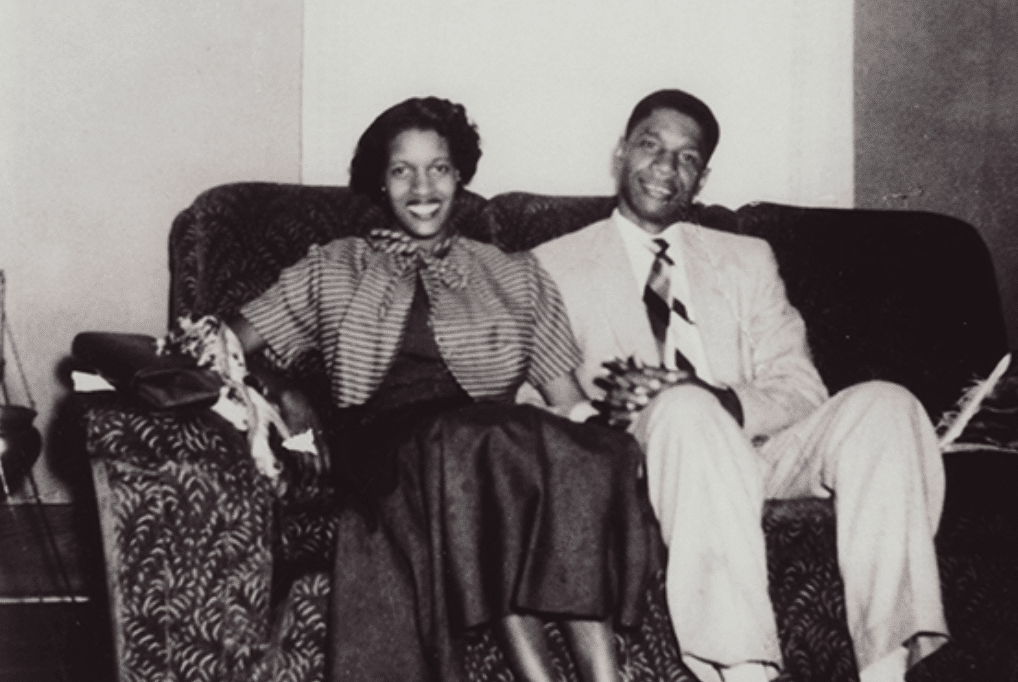Mississippi Today
Q&A: Jackson’s Springboard to Opportunities director on what the nonprofit learned from putting cash into low-income mothers’ hands

Q&A: Jackson's Springboard to Opportunities director on what the nonprofit learned from putting cash into low-income mothers' hands
Sarah Stripp is the managing director of Jackson-based nonprofit Springboard to Opportunities, which supports low-income Mississippians. During the water crisis, when families couldn't rely on clean water from their own pipes, Stripp's organization was giving households $150 a month to buy bottled water. The group is best known for its guaranteed income program, Magnolia Mother's Trust. Stripp sat down with reporter Sara DiNatale to talk about her work and what the group's learned entering its fifth year of the income program.
The interview has been edited for clarity and length.
Sara DiNatale: Well, first off, if you could just tell me a little bit about your nonprofit, Springboard to Opportunities, and all of the types of things you do and the type of gaps that you try to help fill for women in Jackson?
Stripp: So we are an organization that works with families who live in federally subsidized housing, and provide programs and services to help them meet their goals. So subsidized housing, particularly in Mississippi is like 99%, headed by single women and about 99% of those families are Black.
So while technically, our mission is to reach families, and affordable housing, it tends to be Black mothers who are kind of like the main recipients of our work. We really started in 2013 as a resident-service provider. We were basically contracted by private developers to come and provide additional services to families in affordable housing. So that could be everything from providing housing stability, helping folks if they're behind on rent and trying to figure out some different resources, or making sure that they're able to keep up their apartments. Then, having things they need for that, too, like helping folks get childcare or providing after school programs, workforce support programs or different things like that.
And so we work really closely with community members themselves to actually tell us what it is that they need, as opposed to coming in and deciding for them what they need. Because we believe families know better than anybody else what it is that they need in order to thrive and meet their goals.
DiNatale: So, what do they need? And how has that turned into programs that you offer?
Stripp: As we would design programming, we would do that hand-in-hand with community members and do our best to make sure that it was lining up with what they were asking for. And at the same time, we also really recognize that programming can only do so much. And at the end of the day, if there's not good policies to support families, nothing's going to change.
It was through some of that work, and through conversations that we were having with families, where we kept hearing them say: ‘You know, what I actually need to reach my goal is not like another program or another thing that I have to attend, right? It's cash … Food stamps are only going to cover food. My housing voucher only covers housing. I also need diapers; I also need transportation; I also need childcare. I need all these other things. If I'm trying to do that, I need the freedom to be able to spend cash in the way that I see fit for me and my family, as opposed to in the way that a government voucher has decided I should spend it.'
So from that, we wanted to really honor our mission and who we are as an organization and said, ‘OK, so let's figure out how we're going to do that.' So we started a small pilot in 2018, with 20 black mothers called the Magnolia Mother's Trust, which was really the first guaranteed income program … that launched in the country.
DiNatale: So how does the program work and what did you see start to happen?
Stripp: We were working at that point (in 2018) with just 20 moms who received $1,000 a month for 12 months with no strings attached … to see what would happen. And just to kind of put it out there … When moms get money, they spend it to support their families.
Whether that was being able to go back to school or move to a higher paying job, moving out of affordable housing, being able to take their kids to see their grandfather for the first time or some families went down to the beach for the first time and were able to take vacations. One mom bought her son a tuba so that he could be in the marching band. (It was) these little things that moms have always wanted to provide for their kids.
We were able to get some really good traction from that early pilot. And then we were able to expand that in the next year to about 110 moms. Actually, each year since, we've had about 100 moms go through a cohort of getting $1,000 a month for 12 months. And then we've added in, in addition to that, a $1,000 deposit and in a 529 (college) savings account for their kids so that they're having the opportunity to build some wealth for their children.
We also have this opportunity to make sure that the stories of our moms are being put out there. We knew nothing was going to be able to change at a federal or state policy level if we continue to operate with … whatever these kind of nasty narratives around moms who are on welfare, that they're going to abuse the system or that they don't know what they're doing with their money.
DiNatale: What are some of the expectations that you had going into the pilot? Were those met, exceeded or different than what the actual outcome was? What did you really wind up learning?
Stripp: We didn't have a whole lot of expectations, because we wanted to leave the doors open. We were really asking questions around: When you give moms cash do they have the breathing room and the space to be able to actually think about their goals and what they want to do?
They have time to step back and take some time to go back to school and work on the career that they really wanted, as opposed to running between three part-time jobs just trying to make ends meet … People are able to save some of this money and move out of affordable housing or move into a higher paying career.
I think everything got really complicated with the second cohort because COVID came in, and it changed everything. On top of COVID, we just kind of have these compounding crises – the water crisis – and folks losing jobs because of that, because they've had to stay home with their kids (when classes went remote online).
But at the same time, I think what we really have seen … particularly in the second, third, and now we're just about to wrap up our fourth cohort, what's come out and all of the different kinds of evaluations and pieces that we've done has been a really increased sense of parental efficacy. So, moms feeling like they're able to be the moms that they want to be for the first time. It's a really big growth in their own sense of agency and their own sense of self-confidence.
DiNatale: I know a report is coming out later this month that covers more deeply what you've learned through this process. But with that work done, and lessons learned, is the plan to continue this program?
Stripp: We're committed to at least having one more cohort that will start later this fall. I think there might be some pieces that look a little bit different based on things that we've learned, but we're still kind of fleshing out a lot of those details. We want to at least do it once more. What we had committed to, at the beginning, was five years.
Ultimately, what we know is that we are a drop in the bucket. We are providing something for a subset of moms here in Jackson. And that's important, but it's not enough. And even the length of the program that we're able to do is not enough. And I think all of these pilots that we're seeing, a lot of people are using (American Rescue Plan Act) funds and other things to be able to do these (types of programs) in different cities, that's great. But again, it's never going to be totally what we want to see.
Our goal has always been, and what we've always said from the beginning, was to actually change federal policy and be able to see something come out of this — where we are creating more cash and trust-based benefits for families as opposed to limited vouchers or a social safety net that's really easy to fall through.
DiNatale: So your goal, really, is changing the way America treats welfare and assistance programs. With the situation of the Mississippi welfare scandal in mind – the alleged misuse of $77 million in TANF (Temporary Assistance for Needy Families) funds – have you seen the conversation change at all about welfare dollar use?
Stripp: I would say no, not on a community level. Before we actually started doing the Magnolia Mother's Trust, we had done an ad before the welfare scandal…came out, and in about 2017, we did a paper with (public policy think tank) New America, and interviewed a lot of our moms to talk about TANF…And I think, at that point, that was when less than 2% of applications were even being seen. And when we talked to moms about TANF and welfare their response was always like, ‘Oh, I don't even bother with that; it's not even worth my time.' They had either applied before or tired before and it just never made sense. So most of them felt so kind of disillusioned by the system to begin with.
DiNatale: What about state leadership? Has anyone responded to the idea of changing how assistance works?
Stripp: I would say in Mississippi, no. The players at the table who we know would be into this are into it, and the players who are not into it are not interested. The (Mississippi) Democratic Caucus has been really supportive. We had moms come and testify, like the TANF legislative hearings … We've tried to have some conversations with the Department of Human Services that haven't really gone anywhere.
This article first appeared on Mississippi Today and is republished here under a Creative Commons license.
Mississippi Today
On this day in 1850


May 3, 1850

Shadrach Minkins, already separated from his family, escaped from the Norfolk, Virginia, home, where he was enslaved. He made his way to Boston, where he did odd jobs until he began working as a waiter at Taft's Cornhill Coffee House.
Months later, Congress passed the Fugitive Slave Act, which gave authorities the power to go into free states and arrest Black Americans who had escaped slavery.
A slave catcher named John Caphart arrived in Boston, with papers for Minkins. While serving breakfast at the coffee house, federal authorities arrested Minkins.
Several local lawyers, including Robert Morris, volunteered to represent him. Three days later, a group of abolitionists, led by African-American abolitionist Lewis Hayden, broke into the Boston courthouse and rescued a surprised Minkins.
“The rescuers headed north along Court Street, 200 or more following like the tail of a comet,” author Gary Collison wrote. They guided him across the Charles River to the Cambridge home of the Rev. Joseph C. Lovejoy, whose brother, Elijah, had been lynched by a pro-slavery mob in Illinois in 1837.
Another Black leader, John J. Smith, helped Minkins get a wagon with horses, and from Cambridge, Hayden, Smith and Minkins traveled to Concord, where Minkins stayed with the Bigelow family, which guided him to the Underground Railroad, making his way to Montreal, spending the rest of his life in Canada as a free man.
Abolitionists cheered his escape, and President Millard Fillmore fumed. Morris, Hayden and others were charged, but sympathetic juries acquitted them. Meanwhile in Montreal, Minkins met fellow fugitives, married, had four children and continued to work as a waiter before operating his own restaurants.
He ended his career running a barbershop before dying in 1875. A play performed in Boston in 2016 told the dramatic story of his escape.
This article first appeared on Mississippi Today and is republished here under a Creative Commons license.
Did you miss our previous article…
https://www.biloxinewsevents.com/?p=355311
Mississippi Today
Medgar Evers will receive Presidential Medal of Freedom

At her husband's funeral in 1963, Myrlie Evers heard NAACP Executive Director Roy Wilkins declare, “Medgar Evers believed in his country. It remains to be seen if his country believes in him.”
Later today, his country will declare its belief in him when the family of the slain Mississippi NAACP leader receives the Presidential Medal of Freedom, the highest civilian honor.
But Medgar Evers was more than a civilian. He fought the Nazis in World War II, only to return home and fight racism, this time in the form of Jim Crow, which barred Black Mississippians from the ballot box.
On his 21st birthday, he and other Black veterans of the war went to vote at the courthouse in Decatur, where they were met by white men with guns.
Afterward, he vowed he would never be defeated again and that he would keep fighting by joining others dedicated to the cause of the civil rights movement.
“The movement for equality was always on his mind, and whites' denial of his right to vote in his hometown served as one cog of many in the overall wheel of injustice, a wheel of which he was bound and determined to break,” said Michael Vinson Williams, author of “Medgar Evers: Mississippi Martyr.”
Myrlie Beasley met Medgar Evers on the first day of her freshman year at Alcorn A&M College in fall 1950. As she leaned against a light pole, she said he told her to be careful, “you might get shocked.”
And shocked she was when she fell in love and married him a year later. He was one of those military veterans that her family had warned her about. And he was involved in the movement that her family had avoided.
She joined him in the fight, and they moved to Mississippi's only all-Black town, Mound Bayou, where he helped Dr. T.R.M. Howard lead a boycott. They distributed thousands of fluorescent bumper stickers that read, “Don't Buy Gas Where You Can't Use the Restroom.”
In January 1954, the University of Mississippi School of Law turned Medgar Evers away because of the color of his skin. NAACP officials considered taking his case to court, but they were so impressed with him they hired him instead as the first field secretary for the Mississippi NAACP.
Myrlie Evers worked as his secretary. She said he insisted they call each other “Mr. Evers” and “Mrs. Evers” in the office.
He spent much of his time on the road, putting 40,000 miles a year on his car, recruiting new members, reviving branches and inspiring young people to participate in the movement, including Joyce Ladner, who invited him to speak to the NAACP Youth Council in Hattiesburg.
“He had a quiet courage,” she recalled. “I was always amazed that he drove up and down Mississippi's two-lane highways alone at night. He was a marked man, but he kept on going.”

In 1961, Joan Trumpaeur Mulholland was one of more than 400 Freedom Riders, half of them white, who challenged segregation laws in the South. She and other Riders were arrested and sent to serve their time at the State Penitentiary at Parchman.
When she and other Riders needed a lawyer, Medgar Evers “was the one who took care of it,” she said.
He became a model for her and others in character and courage, talking often to Tougaloo College students, she recalled. “He wasn't intimidated.”
In 1962, Evers installed Leslie McLemore as president of the Rust College chapter of the Mississippi NAACP. “Medgar Evers was really a brilliant man,” he said. “He had an incisive mind and personality that drew people to him. In another era, he could have been a U.S. senator from Mississippi or maybe even President.”
Evers investigated countless cases of intimidation and violence against Black Americans, including the 1955 murder of Emmett Till. Evers often dressed as a sharecropper in those investigations.
No matter where he went, threats of violence followed. He bought an Oldsmobile 88 with a V-8 engine so powerful it would leave most cars behind. On some dark nights across the Mississippi Delta, he floored it to escape those hell-bent on harming him.
His name appeared on Ku Klux Klan “death lists,” and his home telephone rang at all hours with threats to him and his family.
When his daughter, Reena, answered the phone one time, she heard a man saying he planned to torture and kill her father.
In spite of these threats, he stayed. He told Ebony magazine, “The state is beautiful, it is home, I love it here. A man's state is like his house. If it has defects, he tries to remedy them. That's what my job is here.”
On May 20, 1963, Evers talked on television about the mistreatment of Black Mississippians. “If I die, it will be a good cause,” he told The New York Times. “I'm fighting for America just as much as the soldiers in Vietnam.”
Weeks later, President Kennedy delivered his first and only civil rights speech, telling the millions watching on television, “If an American, because his skin is dark, cannot eat lunch in a restaurant open to the public, if he cannot send his children to the best public school available, if he cannot vote for the public officials who will represent him, if, in short, he cannot enjoy the full and free life which all of us want, then who among us would be content to have the color of his skin changed and stand in his place?”
Evers smiled. He and other Black leaders had urged Kennedy to push Congress for a civil rights bill, and now that seemed certain to happen.
Hours later, returning home from a late civil rights meeting, Evers was shot in the back in the driveway of his Jackson home.
Myrlie Evers and their three children dashed outside, saw the blood and screamed. “Daddy!” Reena yelled. “Please get up, Daddy.”
He never did.
“He had the courage to hold an impossible job at a crucial turning point in American history,” said Taylor Branch, the Pulitzer Prize-winning author of a trilogy on the civil rights movement.
For the first time, members of the mainstream press didn't call such a killing “a lynching,” he said. “They called it an assassination.”
In his book, “Parting the Waters,” he wrote, “White people who had never heard of Medgar Evers spoke his name over and over, as though the words themselves had the ring of legend. It seemed fitting that the casket was placed on a slow train through the South, bound for Washington so that the body could lie in state.”
After the casket arrived, Medgar Evers was buried with full military honors at Arlington National Cemetery.
“The tragedy of his martyrdom is eloquent testimony to the courage and dedication of a leader who — in his lifetime — deserved the respect and support of the powerful people who later publicly identified with this man and his cause,” said John Dittmer, author of “Local People: The Struggle for Civil Rights in Mississippi.” “Though long overdue, this award is a fitting tribute to Medgar Evers and his family.”
A year after Evers' assassination, Congress passed the Civil Rights Act on his birthday, and President Lyndon B. Johnson signed the bill into law hours later.
“Medgar Wiley Evers boldly stood against injustice, against oppression, against this country's determination to keep Black people as second-class citizens,” Williams said, “and he was murdered because of his commitment to truth, justice and the struggle for civil and human rights.”
Before leaving office as governor in 1984, William Winter hosted Myrlie Evers and her family at the mansion, where he remarked that Medgar Evers did more than just free Black Mississippians, he freed white Mississippians as well from the bonds of racial segregation, oppression and hate, he said. “We were all prisoners of that system.”
It took three decades before Evers' killer was finally brought to justice in 1994, and that verdict helped to inspire the reopenings of other cases. There have been 24 convictions in civil rights cold cases.
Myrlie Evers' courage to press for justice in her husband's case started all of this, said Leslie McLemore, who helped found the Fannie Lou Hamer National Institute on Citizenship and Democracy. “It would not have happened without her persistence.”
When she learned last week about the Presidential Medal of Freedom honoring her late husband, she exclaimed to her daughter, Reena Evers-Everette, “Oh, my God!”
Then Myrlie Evers grew silent.
“I'm just utterly speechless,” she said, “and frozen with gratitude.”
Evers-Everette still misses the man she knows as “Daddy,” but she perseveres as the executive director for the Medgar and Myrlie Evers Institute, because his spirit inspires her.
“I feel him around me all the time,” she said. “I marvel at his courage, stamina, vision, and commitment for equality and justice for his people and all of humanity. I pray for his love and wisdom as I pursue this work, because I don't want him to have died in vain.”
This article first appeared on Mississippi Today and is republished here under a Creative Commons license.
Did you miss our previous article…
https://www.biloxinewsevents.com/?p=354725
Mississippi Today
Legislative leaders: Medicaid expansion measure set to die Thursday night
An effort in the Mississippi Legislature to accept billions of dollars in federal money to expand Medicaid coverage to the working poor – a policy which medical experts, clergy and business leaders advocated – was expected to die on a Thursday night deadline, according to House leaders.
House Medicaid Chair Missy McGee, R-Hattiesburg, told reporters that she delivered a proposal to Senate negotiators on Thursday morning that would have allowed voters to have the final say on a statewide referendum in November whether the state should expand Medicaid.
But the Forrest County lawmaker said she had not heard a response from the Senate at all on Thursday, leading her to believe expansion is certain to die by an 8 p.m. Thursday deadline.
“It's disappointing,” McGee said. “We worked really hard on it, and we fought to the bitter end.”
The bill's death would mark an end to months of intense debate at the Capitol and scores of rallies urging legislators to adopt expansion under the federal Affordable Care Act.
For a brief moment on Wednesday, it appeared both chambers at the Capitol might adopt a compromise, but expansion under that proposal contained stipulations the federal government is not likely to approve and could have held expansion here in limbo for years.
House and Senate negotiators on Tuesday night agreed on a compromise that would have expanded Medicaid coverage to individuals who make roughly $20,000 but only if the federal government signed off on a work proposal for recipients – something the federal government was almost certain to reject.
But the deal fell apart after rumors circulated in the Capitol that the Senate did not have enough votes to support the plan and after a large portion of Democrats in the House objected to the work requirement.
House Speaker Jason White, R-West, said he would have had the votes Wednesday in the House to pass the compromise, even with the loss of a significant number of Democratic votes.
But the speaker opted to send the proposal back to negotiations after being told by Senate leaders that the Senate only had 28 votes – not enough to pass it by a needed three-fifths majority.
White said his negotiators offered the referendum option as a compromise that he hoped more Senate Republicans could support. He said he knew it was a long shot that the Senate would accept the proposal, but he thought it was worth a try.
“I am not casting blame,” White said when asked about what he said was the lack of votes in the Senate. “… But I had to act on that information.”
White said he was disappointed that Medicaid expansion did not pass this session, but he said he is glad it was debated and discussed during the session.
“It was a good first step,” he said. “Whether we will look at it next year or the next, I don't know. We will have to reassess.”
White, in his first year as speaker, was the first Republican legislative leader to bring up legislation to enact Medicaid expansion. That original proposal passed by an overwhelming bipartisan vote in the House.
When asked about whether the Senate had the votes to pass the compromise on Wednesday, a spokesperson for Lt. Gov. Delbert Hosemann said, “The Senate was working to secure the votes, but that effort stalled when House Democrats indicated they did not support the bill.”
Democratic leaders in a statement said they have been “crystal clear” about what they were willing to accept in a Medicaid expansion compromise, but whether House Republicans wanted to listen to is “beyond our control.”
“Unfortunately, neither House nor Senate leadership chose to act on the language we proposed,” the statement read. “Instead, we will leave Jackson without a plan to solve our state's increasingly dangerous healthcare crisis.”
If the expansion legislation dies as expected, lawmakers will have to wait until next year during the 2025 session to reconsider the policy that 40 other states have adopted.
Bishop Ronnie Crudup, Sr., the Mid-South Diocese of the Fellowship of International Church who has been advocating for expansion for months at the Capitol, told Mississippi Today he was still hoping the two chambers could reach a “dramatic” last minute compromise.
“But we will continue to advocate for Medicaid expansion,” Cruddup said. “If something dramatic doesn't happen, we will be looking for other routes to make this happen.”
Lawmakers on Thursday said they expect to end the 2024 legislative session early Saturday.
This article first appeared on Mississippi Today and is republished here under a Creative Commons license.
-
Mississippi Today5 days ago
On this day in 1951
-
SuperTalk FM1 day ago
Driver’s education set to become mandatory in Mississippi as bill passes
-
SuperTalk FM4 days ago
Festival merger in Leland sets up one major event for Mississippi Delta
-
Mississippi News6 days ago
One injured in Mississippi officer-involved shooting after chase
-
SuperTalk FM4 days ago
PERS bill set to phase in employer rate increase heads to governor’s desk
-
Mississippi Business2 days ago
Geartek expanding operations in Alcorn County
-
Mississippi News3 days ago
Two women accused of shoplifting across southeast captured in Mississippi
-
SuperTalk FM7 days ago
Investigation underway after gun found in backpack of Ridgeland High School student











































